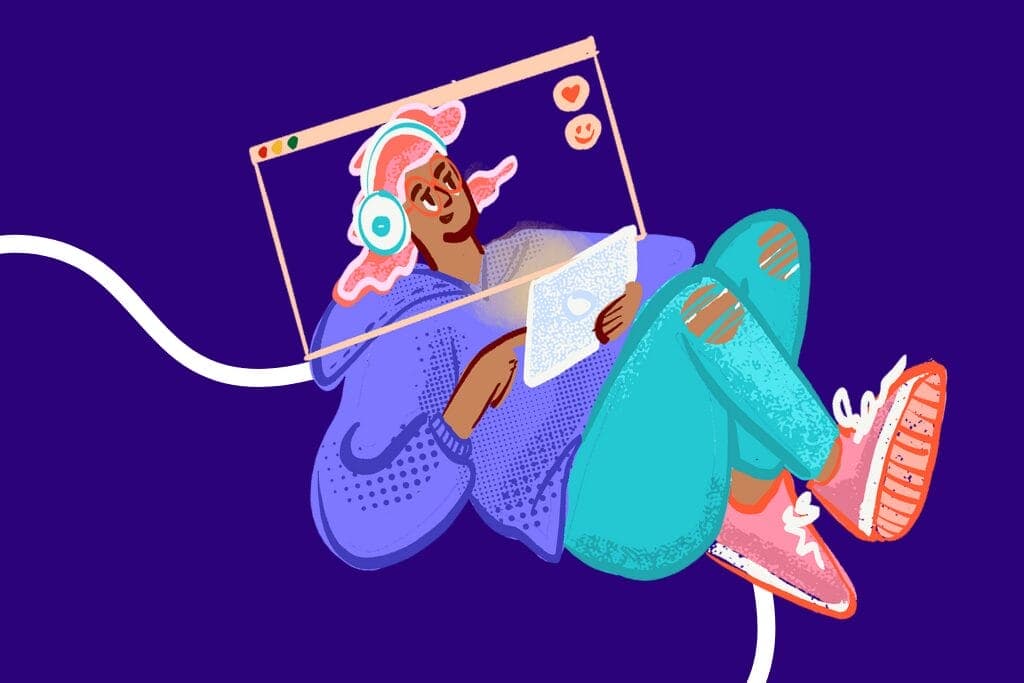Research
Advancing youth-informed research and translating science into meaningful action is a powerful tool for changing policies and practices that impact young people's lives.

Program Overview
Since our founding, we’ve come to understand that achieving a true, lasting impact on the mental health and well-being of young people requires prioritizing the communities most acutely affected. We are committed to a continuous journey of learning, guided by the voices and experiences of young people. We know that youth-centered research is a powerful tool to help solve the societal pressures and systemic inequities facing adolescents during one of the most pivotal times in their growth and development. We work in partnership with leading organizations and young people themselves to conduct quality research that documents the experiences impacting their well-being. By uncovering knowledge and evidence we aim to advance the mental health of young people and support equity-centered solutions that can bring about a world where Black, Brown, and Queer young people are thriving.
2025 Early Career Research Grant
Access to youth well-being data and $10,000 for early-career researchers

Early Career Research Grant
Read our Latest Research
Research uniquely shaped by the experiences of young people
2024 National Survey
How Diverse Communities of Young People Think About The Multifaceted Relationship Between Social Media and Mental Health
Hopelab and Common Sense Media collected data from over 1,200 young people ages 14-22 and released the findings as three parts of our 2024 National Survey. Young people were directly involved in creating survey topics and questions and interpreting results.

Most conversations and headlines surrounding social media and youth mental health focus solely on the harms, portraying young people as passive consumers. This research shows that it's much more complex. If we truly want to improve the well-being of young people, we need to listen to their experiences and ensure that we do not inadvertently remove access to crucial positive benefits, particularly among Black, Latinx, and LGBTQ+ young people.
Our Partners
Common Sense Media helps families and educators navigate media and technology with age-appropriate reviews of movies, TV, books, and apps to promote safe, informed use. Their Digital Citizenship Curriculum equips K–12 students with essential digital skills. With Hopelab, Common Sense Media has studied how young people use online resources for mental health, highlighting the role of digital tools in youth well-being.

Born This Way Foundation, co-founded by Lady Gaga and Cynthia Germanotta, empowers young people and promotes mental wellness through research-driven programs and partnerships. They champion kindness, equity, and open conversations about mental health. The foundation also uplifts youth leaders like Audrey Wang, who was recognized by Hopelab as one of 30 Young Innovators in Behavioral Health.

NORC at the University of Chicago is a nonpartisan research organization that delivers objective data and analysis to inform policy and decision-making. NORC specializes in social science research, addressing topics like public health, education, and technology’s impact on society. In partnership, Hopelab, Common Sense Media and NORC study how social media can affect youth mental health.

The Harvard Graduate School of Education’s Digital Thriving program researches how technology shapes youth well-being, focusing on digital literacy, mental health, and online engagement. Digital Thriving explores ways to foster positive tech experiences. In partnership with Hopelab, the program examines how digital tools impact young people’s mental health, aiming to create healthier online ecosystems.

The Eidos LGBTQ+ Health Initiative at the University of Pennsylvania School of Nursing advances research, education, and policy to improve health outcomes for LGBTQ+ communities. Eidos focuses on reducing disparities and fostering inclusive care. In partnership with Hopelab, the initiative explores digital interventions that support LGBTQ+ youth mental health, ensuring accessible, affirming, and evidence-based resources.















